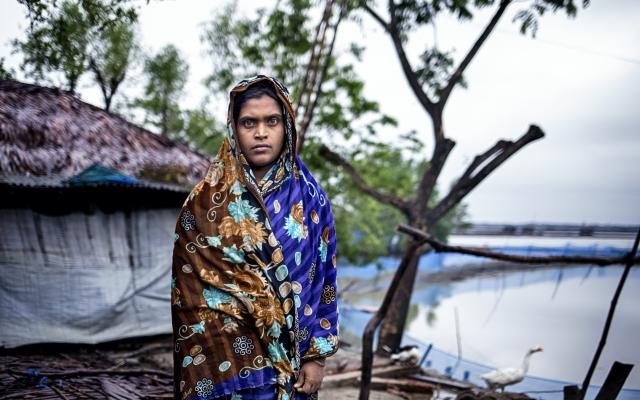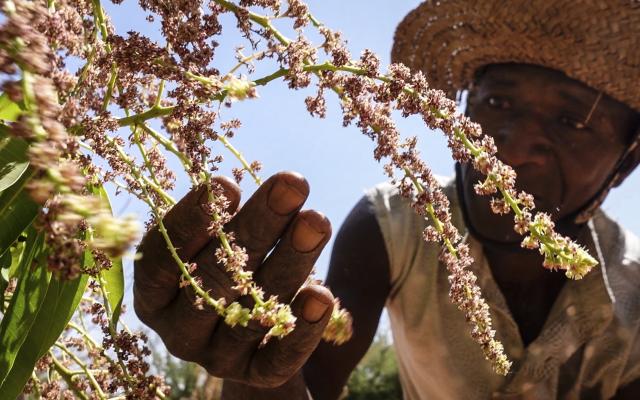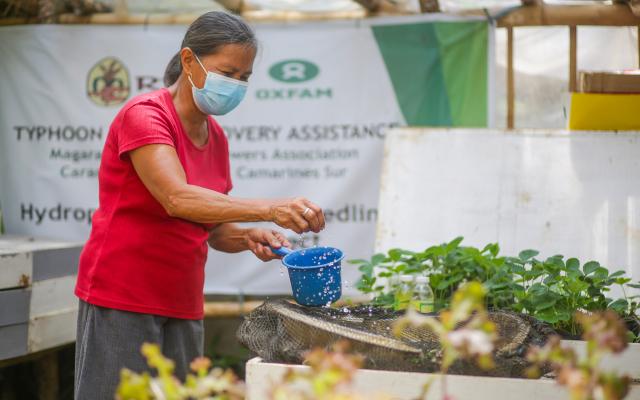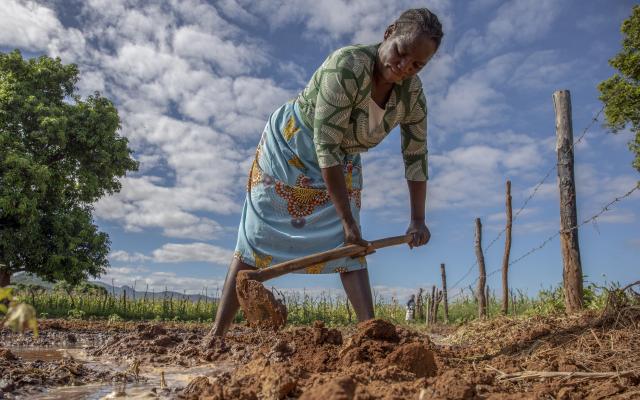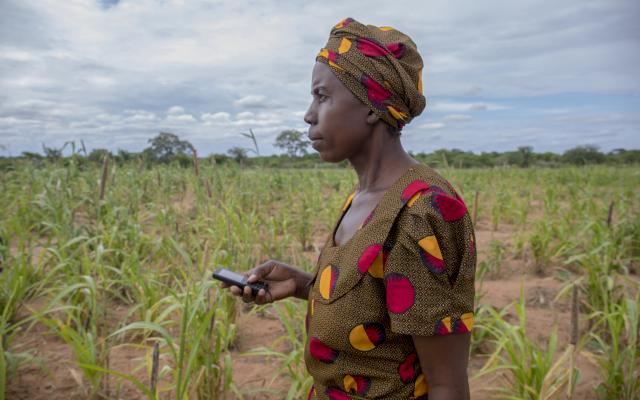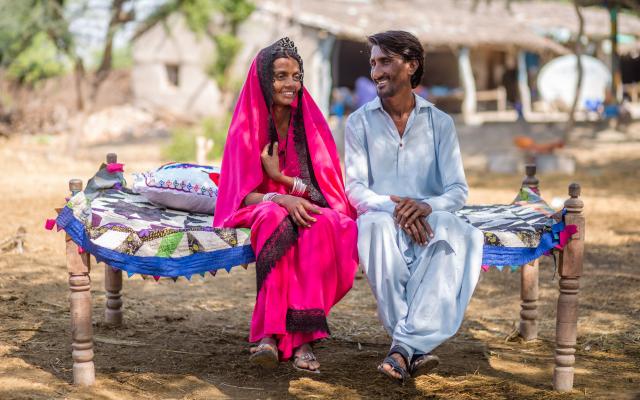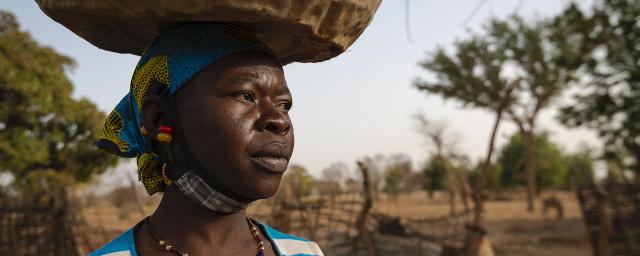
Thanks to a project implemented by the NGO A2E and Oxfam, Aguiratou Ouedraogo, from Burkina Faso, has been trained in new agricultural techniques to adapt to the effects of climate change. Adopting these techniques and diversifying her activities allows her to "bridge the gap" between two harvests and feed her family all year round. Photo: Samuel Turpin/Oxfam
Destructive weather, rising seas, unprecedented fires and historic famines. Climate change is happening now. It is one of the most harmful drivers of worsening hunger, migration, poverty and inequality all over the world. In recent years, already with 1°C of global heating, there have been deadly cyclones in Asia and Central America, huge locust swarms across Africa.
Last year, the world saw a record $50 billion worth of damages from extreme weather disasters exacerbated by climate change, pushing nearly 16 million people in 15 countries to crisis levels of hunger. Despite this, governments have delayed action to tackle the climate crisis to focus instead on the Covid-19 pandemic.
Over the past 10 years, more people around the world have been forced from their homes by extreme weather-related disasters than for any other single reason.
The number of climate-related disasters has tripled in 30 years, with currently one extreme weather event recorded per week.
Since 2000, the UN estimates that 1.23 million people have died and 4.2 billion have been affected by droughts, floods and wildfires.
One of the most harmful drivers of inequality
The climate crisis affects us all, but it doesn’t affect us equally. The richest 1% of people in the world, about 63 million people, are responsible for more than twice as much carbon pollution as the 3.1 billion people who make up the poorest half of humanity.
Yet, the impact of droughts, floods, wildfires and storms hits poor and marginalized communities first and worst, causing unpredictable growing seasons, crop failures, and sharp increases in food prices. People in low-and lower-middle-income countries are around five times more likely than people in high-income countries to be displaced by sudden extreme weather disasters.
Across societies, the impacts of climate change affect women and men differently. Women and girls must walk further to collect water and fuel and are often the last to eat. During and after extreme weather events, they are at increased risk of violence and exploitation.
We need immediate and drastic action
From extreme weather to terrible hunger, the climate crisis worsens the inequalities that keep people in poverty – threatening us all. It hits hardest the people who are least responsible for the problem, and least resourced to protect themselves from the impacts.
The billionaire boom, carbon offsetting over emission cuts, our reliance on fossil fuels and the overconsumption by the 1% must end. We must take bold actions to limit the global temperature rise to 1.5°C. We must build economies that care for people and the planet, over profit.
We are at a tipping point to prevent an irreversible climate catastrophe and the failure to act now will lead to even greater costs later. It will cost the lives and livelihoods of millions of people if we sit by to watch the inaction of those who pollute most.
